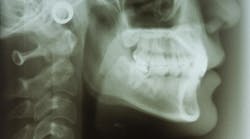Periodontal disease and diabetes: Integrating dentistry and medicine to improve oral-systemic health outcomes
Editor's note: Originally published July 15, 2021. Updated July 2023.
Mounting scientific evidence connects oral health to systemic diseases, specifically diabetes, with 90% of diabetics having oral manifestations of the disease. Diabetes mellitus is a metabolic disorder that occurs when the body does not produce insulin or uses insulin inefficiently. Diabetes is a major global health concern that is increasing at an alarming rate.1
Patients with type 2 diabetes comprise about 90% of the total diabetic population worldwide. Type 2 diabetes is characterized by insulin deficiency in conjunction with insulin resistance and can be managed effectively through patient education, lifestyle changes to include a diet lower in calories and fat, daily exercise, weight reduction, and medication, if indicated. Evidence tells us that type 2 diabetes can be prevented and/or go into remission.2
You may also be interested in ... Integrating dental, medical care breaks down health barriers and improves outcomes
Prediabetes, a condition characterized by elevated blood glucose levels known as glucose intolerance, occurs in about 33% of the US adult population. Progression from prediabetes to type 2 diabetes can be avoided through preventive care. It is possible to maintain normal blood glucose levels by adopting healthy lifestyle changes that include weight loss, proper nutrition, exercise, and using prescribed medications correctly.2
Relationship between diabetes and perio
Research shows a bidirectional relationship between diabetes and periodontal disease. Poor glycemic control shows significantly greater alveolar bone loss compared to well-controlled diabetic patients. Periodontal disease is an inflammation of the gums that can lead to loss of tissue and bone that hold teeth in place. It is caused by an accumulation of plaque, a sticky film of bacteria that is constantly forming on teeth. Plaque is removed easily by brushing twice a day and flossing daily; plaque that is not removed hardens, damages tissue, and creates bone loss.
The resulting poor oral health, xerostomia, and missing teeth can contribute to inadequate diet and nutrition, leading to disease that can decrease quality of life. Chronic inflammation is present in 20% of the worldwide adult population and is believed to be a major factor in the physiology of type 2 diabetes. Periodontal disease is a cause of this inflammation that raises blood glucose levels and may contribute to the development of type 2 diabetes or poor glycemic control in existing diabetic patients. Few diabetic patients visit the dental office for periodontal maintenance; several diabetic patients demonstrated oral manifestations attributed to inadequate dental care.3
The role of the dental team
The role of the dental team in the management of diabetic patients is multifaceted. Dentistry could contribute to significant change in the oral and overall health of their patients through chairside blood glucose screening and medical-dental integration using telemedicine and teledentistry techniques to promote early diagnosis, prevention, and management of periodontal disease and diabetes. The distribution of health-related services and information via electronic information and telecommunication will increase access to care including triage, pre- and post-op evaluation, monitoring, and integration between medicine and dentistry.1
You may also be interested in ... Survey: "Inextricable link" between oral, mental health for older Americans
Patient education plays a fundamental role in the care that is provided by the dental team. Often, diabetic patients are unaware that oral health affects the management of diabetes, and that practicing good oral hygiene is important for a successful outcome. However, educational discussions should be approached cautiously and may include family or friends to provide support and encouragement. Some diabetics have “message burnout” and may avoid conversations about diabetes care, feeling overwhelmed by the details of managing the disease.4
Clinical considerations in treating diabetic patients in the dental practice
Methods of care and approach are determined by the diabetes type (1 or 2) of the patient and how well the diabetes is controlled. Effective management of a diabetic patient begins with the dental team taking a thorough medical history and review of systems. Additionally the dental team must collect all information about the patient’s recent blood glucose levels, at-home monitoring, frequency of HbA1C tests and their readings, and the incidence of hypo- or hyperglycemic occurrences.5
Management of the diabetic patient in the dental office should include:
-
Prepare the dental team for diabetic medical emergencies
-
Consultation with primary care provider
-
Identify level and consistency of diabetic control
-
Provide patient education
-
Reinforce regular diet and medication regimen before and after dental appointments
-
Monitor vasoconstrictors that disrupt blood glucose levels in poorly controlled insulin-dependent diabetic patients
-
Consideration should be given to delaying treatment in those patients with poorly controlled diabetes6
Conclusion
In the future, the dental team can be at the forefront of identifying undiagnosed diseases such as prediabetes and diabetes in patients who could be referred, where medically appropriate, for further diagnostic testing. Incorporating risk assessment tools such as screenings and questionnaires at the dental office will improve health outcomes for a high-risk patient population.7
Diabetes is a public health crisis that can be managed through interdisciplinary integrated care. The disease creates a profound economic and financial burden to health-care systems in addition to a higher incidence of morbidity and mortality. A more collaborative approach to diabetes diagnosis and care seems highly advisable. Such an approach would focus on patient need, which would require dental practices and all members of the dental team to become aligned with other medical disciplines. The dental team would not be diagnosing systemic disease, but rather, advocating for early detection through preventive care to improve medical and dental outcomes. The dental team plays a significant role in reducing the incidence and impact of diabetes. Integrated care is the realization of creative brainstorming and deductive reasoning, and collaborative methods of approach should be considered.2
References
- Yonel Z, Batt J, Jane R, et al. The role of the oral healthcare team in identification of type 2 diabetes mellitus: A systematic review. Curr Oral Health Rep. 2020;7:87-97.
- Improving the delivery of adult diabetes care through integration. Diabetes UK. 2014.
- Ranjan R, Rajan SY. Oral health manifestations in diabetic patients–a review. Int J Community Health Med Res. 2016;2(4):58-62.
- Gupta S, Sood S, Jain A, et al. Evaluation of oral health knowledge, attitude, and practices among diabetics in a Northern Union Territory of India. Indian J Dent Sci. 2017;9(3):148-152.
- Herman WH, Taylor GW, Jacobson JJ, et al. Screening for prediabetes and type 2 diabetes in dental offices. J Public Health Dent. 2015;75(3):175-182.
- Herlich A, Bosack RC. When should you say no? In: Bosack RC, Lieblich S, eds. Anesthesia Complications in the Dental Office. 2015; John Wiley & Sons, Inc.
- Bahammam MA. Periodontal health and diabetes awareness among Saudi diabetes patients. Patient Prefer Adherence. 2015;9:225-233.
About the Author

Allison Dooley, MHS, ADT, RDH
A native of North Dakota, Allison Dooley, MHS, ADT, RDH, has been a dental provider for 27 years. She was a member of the groundbreaking first cohort in Minnesota to receive the master of health sciences advanced dental practitioner degree in 2011. With a passion for her work in clinical dentistry, Dooley enjoys creating smiles and educating her patients. She currently holds a staff position at MN Community Care in St. Paul.
Nick Coller, MA
Nick Coller, MA, received his master’s in French and German from St. Catherine’s College Oxford. He worked for ten years in marketing, communication, and business strategy before moving into dentistry. A qualified senior hygienist in Germany, he earned a diploma in dental hygiene and therapy and a Tutor’s Award from Kings College Hospital. Coller is a passionate oral health educator and author, regularly contributing to the UK dental press and practicing in central and southwest London.

